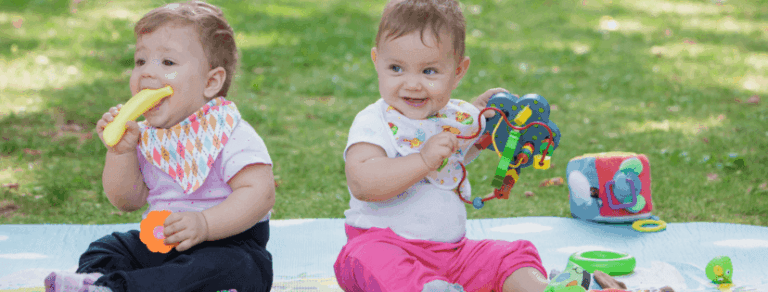Have you ever observed your child pick up their doll and pretend like they are feeding them? Or have you seen your son use a stick as a sword while playing with his friends? Pretend play is part of early childhood and late, but it’s also vital in a child’s learning and overall development. When children pretend, they use their imagination to build creative solutions to problems, explore new ideas, and try out different roles.
Pretend play is beneficial for children because it helps them develop various essential skills. Research also shows that pretend play has a whole host of benefits in early childhood. Here are eight benefits of pretend play in early childhood:
1. Pretend play helps develop language and communication skills
Have you ever listened to your little ones as they engage in imaginary play with their toys or their friends? You might have noticed that they often use a lot of language during pretend play. You might even hear your own words being used and reflected in your child’s play.
Pretend play gives children the opportunity to practice and learn new words and concepts. It helps them understand the power of language. It also helps them develop their communication skills. When children pretend play with others, they learn how to communicate their thoughts and ideas to cooperate and play together. Language and communication development is one of the important benefits of pretend play in early childhood
2. It boosts creativity and imagination
Pretend play allows children to be creative and imaginative. They can make-believe that they are anyone or anything they want to be.
In pretend play, there are no limits or boundaries. Children can explore new ideas, try out different roles, and use their creativity to build solutions to problems.
3. It helps develop social skills
Pretend play allows children to interact with others in a make-believe situation. Through this type of play, children learn to take turns, share, and cooperate with others.
Imaginative play also helps children understand and express emotions. When children pretend play, they often use emotional expressions. For example, they might cry or get angry to express what their character could be feeling. One of the vital benefits of pretend play in early childhood is it helps children understand and regulate their own emotions.
4. It enhances brain development
Pretend play has been linked to enhanced brain development in executive function, symbolic thought, and theory of mind.
Executive function skills are essential for self-regulation, planning, and problem-solving, and pretend play helps children practice these skills.
Symbolic thought is the ability to understand that something can represent something else. For example, a child might pretend that a stick is a sword. This ability develops during imaginative play.
Theory of mind is the ability to understand that other people have minds of their own with their own thoughts and feelings.
5. It improves academic performance
Pretend play has also been linked to improved academic performance in literacy and math.
Researchers found that children who engaged in more pretend play had better literacy skills in one study. Another study found that children who engaged in pretend play with math materials had better math skills.
6. It helps develop fine and gross motor skills
Pretend play also helps children develop both fine and gross motor skills. Fine motor skills are the small muscle movements of the hands and fingers. For example, pretend play might involve using small muscles to thread beads or draw a picture.
Gross motor skills are the large muscle movements of the arms, legs, and torso. When your child’s imaginative play involves running, jumping, or climbing, they’re developing their gross motor skills at the same time.
7. It builds self-confidence and self-esteem
Pretend play allows children to practice being independent and taking on different roles. They build self-confidence and self-esteem as they try out new things and take on different challenges.
8. It’s just plain fun!
Last but not the least, pretend play is just plain fun! It’s a great way for children to explore their interests, use their imaginations, and have a good time!
Pretend play is an integral part of child development. The benefits of pretend play in early childhood are numerous! Be sure to actively encourage pretend play in your child’s life and watch them grow and develop in incredible ways!
At Carepointe Academy, we take pride in our theme-based and play-based early childhood programs that ignite your child’s creativity and natural curiosity.







